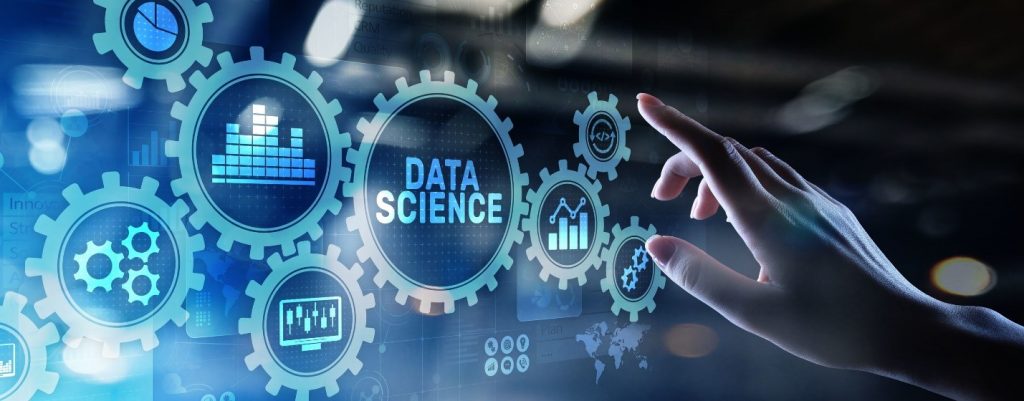In this fast-paced digital world we live in, technology is evolving quickly. In just 20 years, we’ve seen a fantastic transformation of mobile technology, computers, digital tools, etc. All of this technology has produced many different practices, processes, and terminology.
Data is one of the terms that’s often used and put into different contexts. This word has become very important, and that’s why it’s everywhere. Data is generated more than ever, and companies are paying more attention to it.
It can help reach valuable conclusions, analysis, insights, and predict essential events. Two data related terms that people are often confused about are data science and data mining. Here is what they are all about and how they are different from each other.
What they are
Data science
Data science involves using many different machine learning methods, algorithms, and tools to discover patterns and logical conclusions through raw data. Data science uses exploratory analytics and various machine learning algorithms to recognize patterns or occurrences.
Data science takes a look at a piece of data from many different angles. In some cases, new perspectives are developed during the process, and the goal is to gain fresh information. Data science uses machine learning, prescriptive, and predictive analytics to make predictions or decisions.
Data mining
Data mining services have become popular in the last couple of years. This process involves gathering and extracting focused and structured pieces of data from a larger volume of data. It includes analyzing various data patterns with computer software.
Data mining can also be used in data science and considered a small part of it. Data mining services are often used by businesses to learn more about their target market or customers. It helps adjust their strategies to improve the business approach.
What they focus on
Data science can be focused on four main things:
- Predicting possibilities or future events;
- Suggesting different actions based on analysis and offering potential outcomes;
- Learning future trends;
- Discovering different hidden patterns within data with machine learning;
Data mining can be focused on these five areas:
- Predicting patterns automatically through behavior analysis and trends;
- Giving predictions through potential outcomes;
- Providing decision-oriented information;
- Analyzing massive databases or data sets;
- Clustering information;
Even though these two are similar, data science is a much wider field that can include countless processes for analyzing, gaining insights, and gathering data. Simultaneously, data mining is more focused on getting useful data from more massive datasets or databases while acquiring essential patterns.
What are their respective goals
Data science’s primary goal is to come up with the tools required for extracting valuable insights from data for a particular organization. At the same time, data science also constructs the methodology for this process and outlines all the tools that will be used.
All of this requires knowledge about how information flows through an organization and its value. At the same time, it’s important to identify business opportunities. On the other hand, data mining is only used to discover critical rules and patterns within some data.
It looks at some data historically and tries to recognize future outcomes from it. The desired patterns are set by the person in charge of the process.
Required vocational skills to do either!
Data science is a much more complex field that has lots of different practices and methodologies. This is why it requires more skills. Data scientists need to know programming to organize, manage, and clean datasets.
It also requires knowledge on how to use various analytical tools through which they can perform multiple data-related tasks. They also need to know how to manage and understand unstructured data coming from multiple channels.
Data mining, on the other hand, requires familiarity with some analytics tools. It also requires the necessary programming language skills and experience with using operating systems. It’s about gathering data and putting it in databases in the appropriate format while letting tools do most things by default.
Data Science is a broader concept than data mining!
Data science and mining are some of the essential concepts today when it comes to data technology. Both of them are focused on gathering and making sense of large volumes of data generated daily.
However, they have different levels of involvement in data. First of all, data mining is just one of the processes under the umbrella of data science. This makes it much narrower. Yes, they can both be used by organizations to make better decisions and recognize future opportunities.
However, data science can have a more thorough approach, understand the consequences of actions, and look at data from different angles. It has the power to recognize better opportunities and give answers to questions that haven’t even been asked.
Synonyms for data mining and data science
When you look at data science vs. data mining, in terms of their names and synonyms, many different terminologies are used. For data science, synonyms like data analytics, data analysis and process, data processing, and data-driven science are often used.
More importantly, they are correct. However, people use wrong phrases and terms such as big data analytics and big data. People often mistake it with data mining as well.
Data mining also has several synonyms, including data extraction, data retrieval, data exploration, data extraction, data crawling, etc.
Conclusion
Whether you get data science or data mining services depends entirely on your needs. They are not interchangeable and cannot be compared. When it comes to data science vs. data mining, you can say that data science is better, but it’s not always necessary.
Sometimes data mining is sufficient for business needs. You need to assess your goals and how you want to achieve them. Only then can you understand which service you need.
